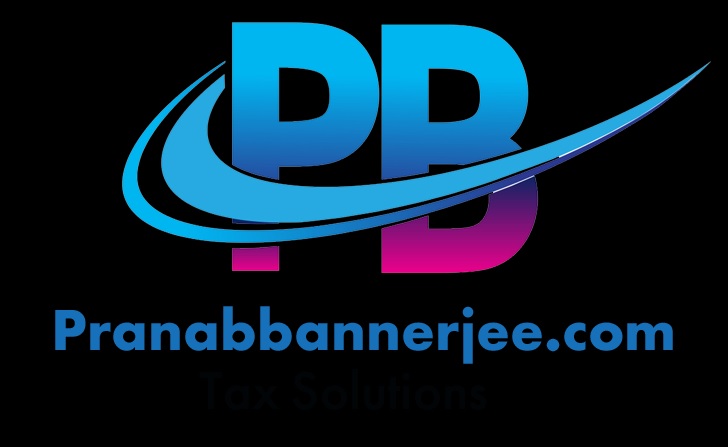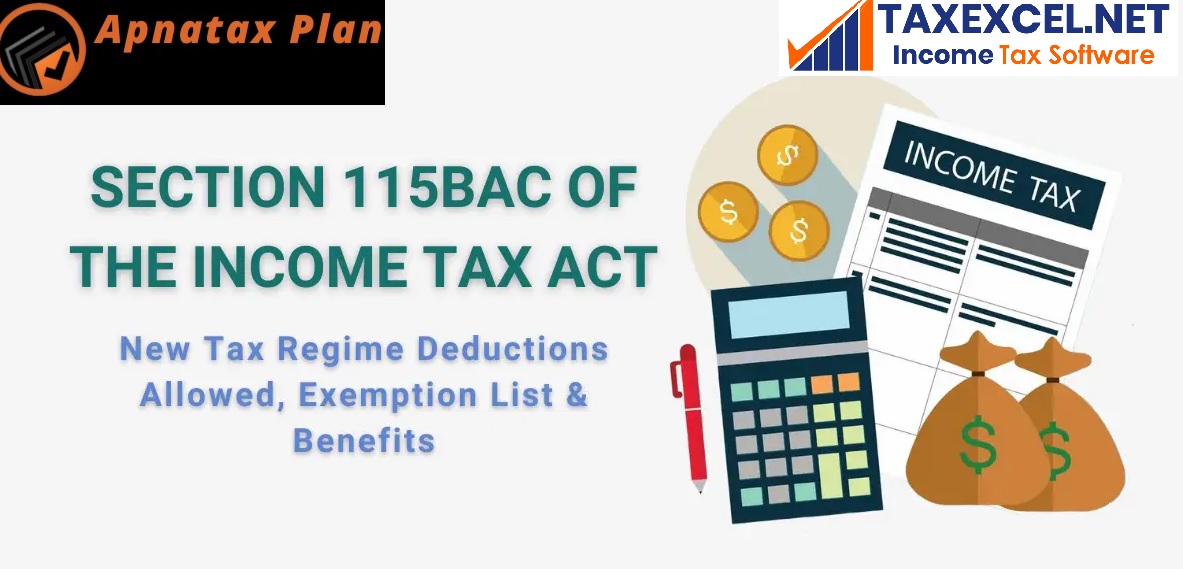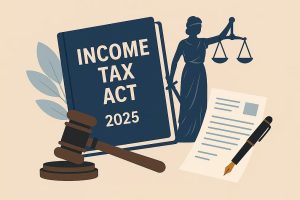Table of Contents
ToggleIntroduction
If you’ve been confused about whether the Section 87A tax rebate applies to short-term capital gains (STCG) under the new tax regime, you’re not alone. Many salaried taxpayers wondered if they could claim this rebate when their total income included gains taxed under Section 111A. Thankfully, two recent appellate rulings have brought much-needed clarity and relief.
In simple terms, the Commissioners of Income Tax (Appeals) confirmed that taxpayers earning up to ₹7 lakh annually—including income from STCG—can still claim the Section 87A rebate under Section 115BAC(1A).
Let’s dive deeper into these rulings, understand their implications, and see how they affect you under the new tax regime.
Table of Contents
| Sr# | Headings |
| 1 | What is the Section 87A Rebate? |
| 2 | The New Tax Regime and Its Impact |
| 3 | Understanding Short-Term Capital Gains (STCG) under Section 111A |
| 4 | The Core Issue: Is STCG Eligible for 87A Rebate? |
| 5 | Case 1: CIT(A) Panchkula’s Ruling for AY 2024-25 |
| 6 | Case 2: CIT(A) Nagpur’s Decision Brings Further Clarity |
| 7 | Key Legal Takeaways from Both Cases |
| 8 | Judicial and Practical Significance |
| 9 | Section 143(1) and Prima Facie Adjustments |
| 10 | Impact of the Bombay High Court Judgment |
| 11 | How Taxpayers Can Benefit from These Decisions |
| 12 | Steps to Claim the Rebate Under the New Tax Regime |
| 13 | Importance of Appellate Representation |
| 14 | Practical Impact for Salaried Individuals |
| 15 | Conclusion |
| 16 | FAQs |
1. What is the Section 87A Rebate?
The Section 87A rebate is like a safety cushion for taxpayers with moderate incomes. It allows individuals with a total income of up to ₹7 lakh to get a rebate of up to ₹25,000, effectively bringing their tax liability to zero.
Simply put, if your taxable income after deductions doesn’t exceed ₹7 lakh, you pay no income tax—a significant relief for salaried and small taxpayers.
2. The New Tax Regime and Its Impact
The new tax regime under Section 115BAC(1A) offers lower tax rates but fewer deductions. Many taxpayers switched to this regime in FY 2024-25 for simplicity and lower rates.
However, confusion arose when the Centralised Processing Centre (CPC) began denying Section 87A rebates for those whose income included STCG under Section 111A—the gains taxed at 15%.
This led to uncertainty and appeals from affected taxpayers.
3. Understanding Short-Term Capital Gains (STCG) under Section 111A
STCG refers to profits earned from selling listed equity shares or equity-oriented mutual funds held for less than 12 months. These are taxed at 15% under Section 111A.
But here’s the catch—when your total income includes STCG and stays below ₹7 lakh, the law doesn’t say you can’t enjoy the Section 87A rebate. The confusion arose from how CPC interpreted the system’s logic, not the law’s intent.
4. The Core Issue: Is STCG Eligible for 87A Rebate?
The big question was: Can taxpayers under the new tax regime claim the 87A rebate if their income includes STCG?
Initially, the CPC denied this benefit, assuming the rebate applied only to income taxed at regular slab rates. However, two appellate rulings proved that interpretation wrong.
Both cases confirmed that “total income” includes STCG, and since the law doesn’t exclude it, the rebate under Section 87A must apply.
5. Case 1: CIT(A) Panchkula’s Ruling for AY 2024-25
In this case, a salaried individual filed under the new tax regime with an income of ₹5.3 lakh, including STCG under Section 111A.
CPC denied the rebate, granting it only on the non-capital gain portion. The taxpayer argued that Section 87A refers to “total income” and doesn’t exclude STCG.
The CIT(A) agreed, ruling that the CPC’s exclusion of STCG was incorrect and directed the Assessing Officer to allow the rebate if validly claimed.
Verdict: Rebate allowed on STCG under the new regime.
6. Case 2: CIT(A) Nagpur’s Decision Brings Further Clarity
Another taxpayer faced the same issue. His total income, below ₹7 lakh, included STCG taxed at 15%. Again, CPC disallowed the rebate.
However, the CIT(A) Nagpur cited that:
- Section 87A doesn’t restrict STCG.
- Section 111A has no limiting clause.
- The Bombay High Court (in The Chamber of Tax Consultants v. UOI, Jan 2025) directed updates to the ITR utility to reflect this right.
Thus, the CIT(A) directed the AO to allow the rebate, reinforcing that no statutory bar existed.
7. Key Legal Takeaways from Both Cases
- Rebate is total income-based, not head-based.
- No exclusion exists for STCG under Section 111A.
- Procedural denials can’t override statutory rights.
- CIT(A) has the authority to correct CPC processing errors.
In short, these rulings confirm that STCG doesn’t disqualify you from the 87A rebate if your total income is under ₹7 lakh.
8. Judicial and Practical Significance
These decisions reaffirm that:
- The law, not the software, determines your tax rights.
- CPC can’t adjust or deny rebates on debatable issues.
- Taxpayers can rely on appellate remedies when software errors create confusion.
Such clarity ensures fairness and prevents mechanical disallowances that often frustrate honest taxpayers.
9. Section 143(1) and Prima Facie Adjustments
Under Section 143(1), CPC can make certain prima facie adjustments while processing returns. But disallowing a Section 87A rebate for including STCG is not one of them—it’s a debatable issue, not a computational error.
The CIT(A) rightly held that such a denial exceeds CPC’s authority and violates natural justice principles.
10. Impact of the Bombay High Court Judgment
The Bombay High Court’s ruling in The Chamber of Tax Consultants v. UOI (2025) was a game-changer. It ordered the ITR utilities to be updated to allow Section 87A rebates even when total income includes STCG.
This landmark decision reinforced that technical glitches can’t curtail statutory entitlements.
11. How Taxpayers Can Benefit from These Decisions
If you’re a salaried taxpayer under the new regime with total income below ₹7 lakh (including STCG), you can claim a full rebate under Section 87A.
If CPC denied it earlier, don’t worry—you can:
- File a rectification request under Section 154, or
- File an appeal under Section 246A citing these rulings.
Either way, you have solid legal backing now.
12. Steps to Claim the Rebate Under the New Tax Regime
- Opt for the new tax regime (Section 115BAC(1A)) in your return.
- Ensure your total income after deductions is ≤ ₹7 lakh.
- Include your STCG details under Section 111A.
- The ITR utility should now auto-compute the Section 87A rebate.
- If it doesn’t, submit a rectification request or appeal.
13. Importance of Appellate Representation
Sometimes, a well-prepared appeal makes all the difference. As these rulings show, the CIT(A) plays a crucial corrective role, ensuring lawful interpretation overrides mechanical processing errors.
Effective representation ensures that taxpayers aren’t penalised due to system misinterpretations.
14. Practical Impact for Salaried Individuals
The rulings mean that:
- Salaried individuals with total income ≤ ₹7 lakh (including STCG) get complete tax relief.
- You no longer need to fear unfair rebate denials.
- It restores confidence in the appellate process as a remedy for genuine grievances.
It’s like finally clearing the fog that had clouded this tax provision for years.
15. Conclusion
The appellate rulings on Section 87A rebate allowed on STCG in the new tax regime bring significant relief to thousands of salaried taxpayers. They reaffirm that lawful intent prevails over system errors.
When your total income, including short-term capital gains, doesn’t exceed ₹7 lakh, you’re entitled to a full rebate under Section 87A for the period.
These judgments underscore the importance of fair processing, judicial oversight, and the taxpayer’s right to relief.
FAQs
- Can I claim a Section 87A rebate if my total income includes STCG under Section 111A?
Yes, as per recent CIT(A) rulings, you can claim the rebate if your total income (including STCG) does not exceed ₹7 lakh. - What is the maximum rebate allowed under Section 87A in the new tax regime?
You can claim a maximum rebate of ₹25,000 under Section 87A for FY 2024-25 and AY 2025-26. - What should I do if CPC denied my Section 87A rebate on STCG income?
You can file a rectification request under Section 154 or an appeal under Section 246A, citing the latest CIT(A) and High Court rulings. - Does the rebate apply only under the new tax regime?
Yes, under Section 115BAC(1A) of the new regime, taxpayers with total income up to ₹7 lakh can claim a full rebate under Section 87A. - Can procedural software issues affect my eligibility for the rebate?
No, procedural issues or ITR utility limitations cannot override your statutory rights. The Bombay High Court has directed the department to ensure proper computation.
In short: If your total income (including STCG) under the new tax regime is below ₹7 lakh, you are eligible for a complete Section 87A rebate—a welcome relief for India’s salaried class.





